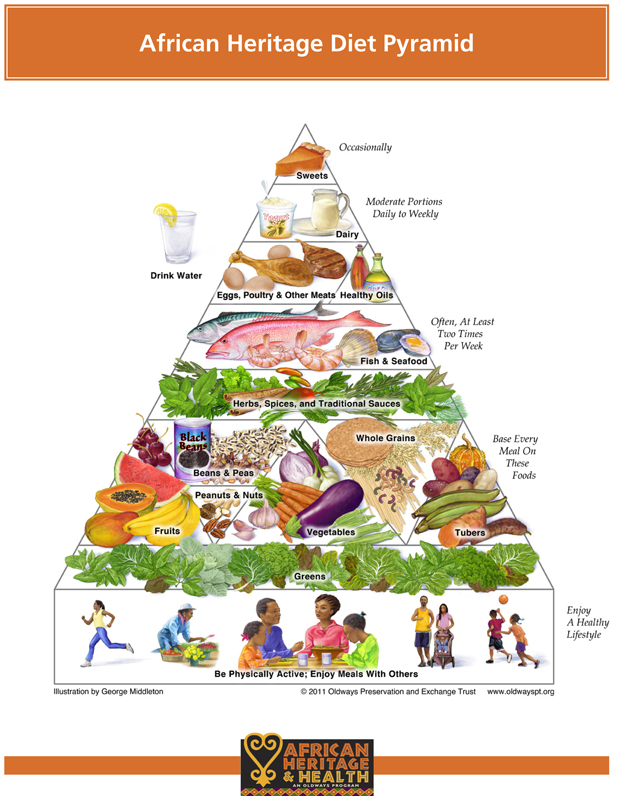Healthy eating through cultural discovery

Two Northeastern professors have collaborated to help develop the African Heritage Diet Pyramid, an approach to healthy eating that focuses on health as well as history.
Professors Bob Hall, a scholar of African American studies, and Katherine Tucker, a nutritionist and the health sciences chair in the Bouvé College of Health Sciences, helped craft the new pyramid created by a nonprofit organization called Oldways. The organization promotes healthy eating through a focus on heritage and culture.
The pyramid, released last month, centers around traditional African and Caribbean foods rather than what Hall called “inherently unhealthy” soul food.
“In my research, I became increasingly convinced that the foodways in the source areas of Africa, as well as the Caribbean and North and South America, where many of today’s African-Americans descended from, are not in and of themselves unhealthy,” said Hall, an associate professor in the Department of African American Studies whose research includes a focus on the foods that traveled with slaves to America. “So we worked to create a plant-based diet with relatively modest amounts of meat, just like you might find in western Africa during the height of the slave trade.”
Blacks in America tend to face greater health challenges than the U.S. population as a whole, said Hall and Tucker, who attribute the distinction more to issues of class and economic inequity than race. Still, a heritage-based approach at addressing those underlying health issues can work, said Oldways president Sara Baer-Sinnot, because tying a new diet to a search for cultural understanding can help a person become more invested in adopting healthier eating habits.
“America is a melting pot of cultures, and a lot of experts believe looking back at one’s own culture can be a real motivator,” said Baer-Sinnot, whose Boston-based nonprofit has created similar pyramids for other cultural and ethnic groups.
This latest pyramid is based on a foundation of dark greens, which were a food staple in Africa, with meats and dairy near the top of the pyramid. Vegetables, whole grains, beans, fruits and tubers are listed as foods that each meal should be based on.
Oldways plans to work with schools, universities, churches, cultural groups and health-care professionals to promote the new pyramid.
“Right now, the U.S. diet is not very healthy. We have an epidemic of obesity and diabetes and an excess of heart disease and cancer, and so much of it is due to the refined, highly-processed food supply we’re currently using,” Tucker said. “We know it is hard for an individual to change his or her behavior, and we think that connecting back to one’s cultural roots can be a great way to motivate health eating and lifestyles.”
African Heritage Food Pyramid image courtesy Oldways.





